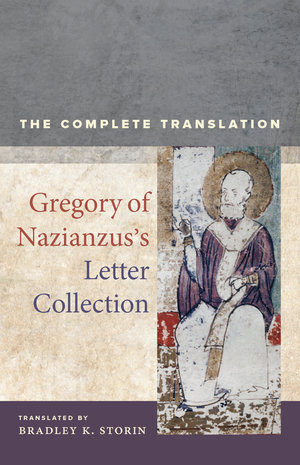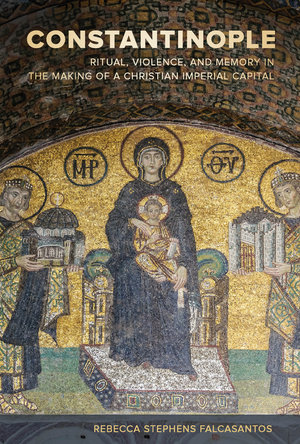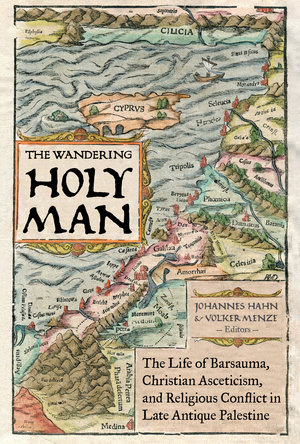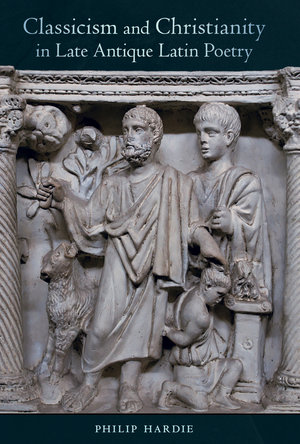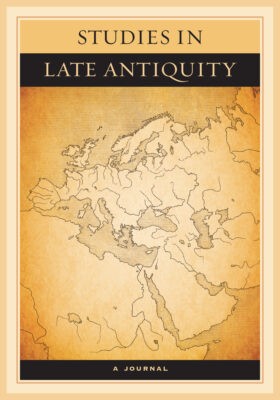
While the North American Patristics Society 2020 annual conference is cancelled due to COVID-19, UC Press is excited to present new translations and also recent releases in the Christianity in Late Antiquity, the official book series of NAPS. The series represents the full range of approaches to early Christianity practiced by scholars in North America and internationally, combining the best of theological analysis and institutional history with newer approaches in social history, material culture, liturgical studies, and gender studies.
Gregory of Nazianzus’s Letter Collection: The Complete Translation
translated by Bradley K. Storin
Saint Gregory of Nazianzus, also known as Gregory the Theologian, lived an illustrious life as an orator, poet, priest, and bishop. Until his death, he wrote scores of letters to friends and colleagues, clergy members and philosophers, teachers of rhetoric and literature, and high-ranking officials at the provincial and imperial levels, many of which are preserved in his self-designed letter collection. Accompanying the translation are an introduction, a prosopography, and annotations that situate Gregory’s letters in their biographical, literary, and historical contexts.

Jephthah’s Daughter, Sarah’s Son
The Death of Children in Late Antiquity
by Maria E. Doerfler
Late ancient writers turned to characters like Eve and Sarah, Job and Jephthah as models for grieving and for confronting or submitting to the divine. Jephthah’s Daughter, Sarah’s Son traces the stories these writers crafted and the ways in which they shaped the lived experience of familial bereavement in ancient Christianity. A compelling social history that conveys the emotional lives of people in the late ancient world, Jephthah’s Daughter, Sarah’s Son is a powerful portrait of mourning that extends beyond antiquity to the present day.
Constantinople
Ritual, Violence, and Memory in the Making of a Christian Imperial Capital
by Rebecca Stephens Falcasantos
Forthcoming in June, Constantinople argues that imperial Christianity was in fact a manifestation of traditional Roman religious structures. In particular, she explores how deeply established habits of ritual engagement in shared social spaces—ones that resonated with imperial ideology and appealed to the memories of previous generations—constructed meaning to create a new imperial religious identity. By examining three dynamics—ritual performance, rhetoric around violence, and the preservation and curation of civic memory—she distinguishes the role of Christian practice in transforming the civic and cultic landscapes of the late antique polis.
The Wandering Holy Man
The Life of Barsauma, Christian Asceticism, and Religious Conflict in Late Antique Palestine
edited by Johannes Hahn and Volker Menze
Barsauma was a fifth-century Syrian ascetic, archimandrite, and leader of monks, notorious for his extreme asceticism and violent anti-Jewish campaigns across the Holy Land. Until now, only the most salacious bits of the Life of Barsauma—a fascinating collection of miracles that Barsauma undertook across the Near East—had been translated. This pioneering study includes the first full translation of the Life and a series of studies by scholars employing a range of methods to illuminate the text from different angles and contexts.
Classicism and Christianity in Late Antique Latin Poetry
by Philip Hardie
After centuries of near silence, Latin poetry underwent a renaissance in the late fourth and fifth centuries CE evidenced in the works of key figures such as Ausonius, Claudian, Prudentius, and Paulinus of Nola. In Classicism and Christianity in Late Antique Latin Poetry, Philip Hardie explores the ways in which poets writing on non-Christian and Christian subjects used the classical traditions of Latin poetry to construct their relationship with Rome’s imperial past and present, and with the by now not-so-new belief system of the state religion, Christianity.

Valentinian Christianity
Texts and Translations
by Geoffrey S. Smith
Valentinus, an Egyptian Christian who traveled to Rome to teach his unique brand of theology, and his followers, the Valentinians, formed one of the largest and most influential sects of Christianity in the second and third centuries. But by the fourth century, their writings had all but disappeared suddenly and mysteriously from the historical record, as the newly consolidated imperial Christian Church condemned as heretical all forms of what has come to be known as Gnosticism. Valentinian Christianity: Texts and Translations brings together for the first time all the extant texts composed by Valentinus and his followers.
